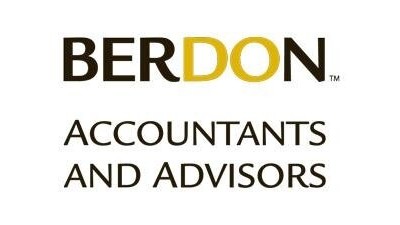Key Considerations For Choosing Between GAAP And Income Tax Basis Accounting

For owners and operators of CRE assets, there are several key differences between Generally Accepted Accounting Principles and income tax basis accounting. The latter is necessary for income tax returns, which can render the GAAP report superfluous. This has encouraged many CRE professionals to forgo the routine preparation of statements using GAAP. When entering into agreements that require reports or any calculations based on income, it is important to understand the different ways these amounts are calculated.
Berdon LLP tax partner Meyer Mintz and audit partner Marc Fogel explained the benefits and dangers of eschewing GAAP. The partners help CRE owners, investors and operators look ahead to select the more appropriate method and anticipate the choice’s implications.
“The income tax basis statements are becoming more common, simply because GAAP is usually not as relevant to the real estate world,” Mintz said.
GAAP remains the most common reporting standard for financial statements in the U.S., and boilerplate language in loan covenants frequently calls for its use. Other documents, like leases and management agreements, typically require calculations to be done based on income. It is essential to know what income they are referring to — GAAP, tax or some other definition outlined in the agreement.
Lenders are now adjusting protocol to accommodate income tax statements. But owners need to be cognizant of discrepancies before entering into agreements like mortgages, leases and related loan covenants. They should review calculations, such as debt service coverage ratio, with their CPAs to comprehend and plan for the ramifications of the reporting method they choose. Classification of capital expenditures, for example, differs.
For income tax purposes, owners typically want to show more deductions and defer as much income as possible. GAAP requires fixed assets be capitalized and depreciated over their useful life, which could be decades, but the income tax rules set by the IRS allow for more improvements to be deducted immediately, thereby lowering taxable income.
“Income tax rules are generally more aggressive in our determination of deductible repairs,” Mintz said. “The different NOI impacts of the same multimillion-dollar renovation could represent a favorable decrease in taxable income, but might be a problem for debt covenants.”
GAAP is indispensable to public companies, like public REITs, and institutional investors. Because of its standard set of rules, it is widely considered more uniform and comparable.
Involvement of an institutional investor in a deal after the property is acquired may necessitate re-creating prior financials. This can be a time-consuming and expensive process depending on a building’s age and original purchase date.
On the income recognition side, GAAP shows earnings in the period earned rather than when cash is received or spent. This could help mitigate the impact of the lower taxable income during a period of free rent. For GAAP purposes, any free rent period is amortized over the life of the lease, while for tax purposes it is generally not recognized until it is due under the lease.
“If, for example, there is a three-year lease calling for rent of $100 the first year, $200 the second and $300 the third, under GAAP, $200 is recognized consistently each year. With income tax basis, earnings and tax burden are lower in year one and higher in year three,” Fogel said.
“Leadership anticipating the arrival of a new partner should try to consider the reporting preferences and requirements of that partner,” he said. “Also, the mortgage and all peripheral documents should be revised to ensure that other definitions, like cash flow and income, are consistent with expectations.”
While it is advantageous to pay as little tax as possible, CRE pros cannot overlook the requirements of potential or existing lenders.
To learn more about this Bisnow content sponsor, click here.

